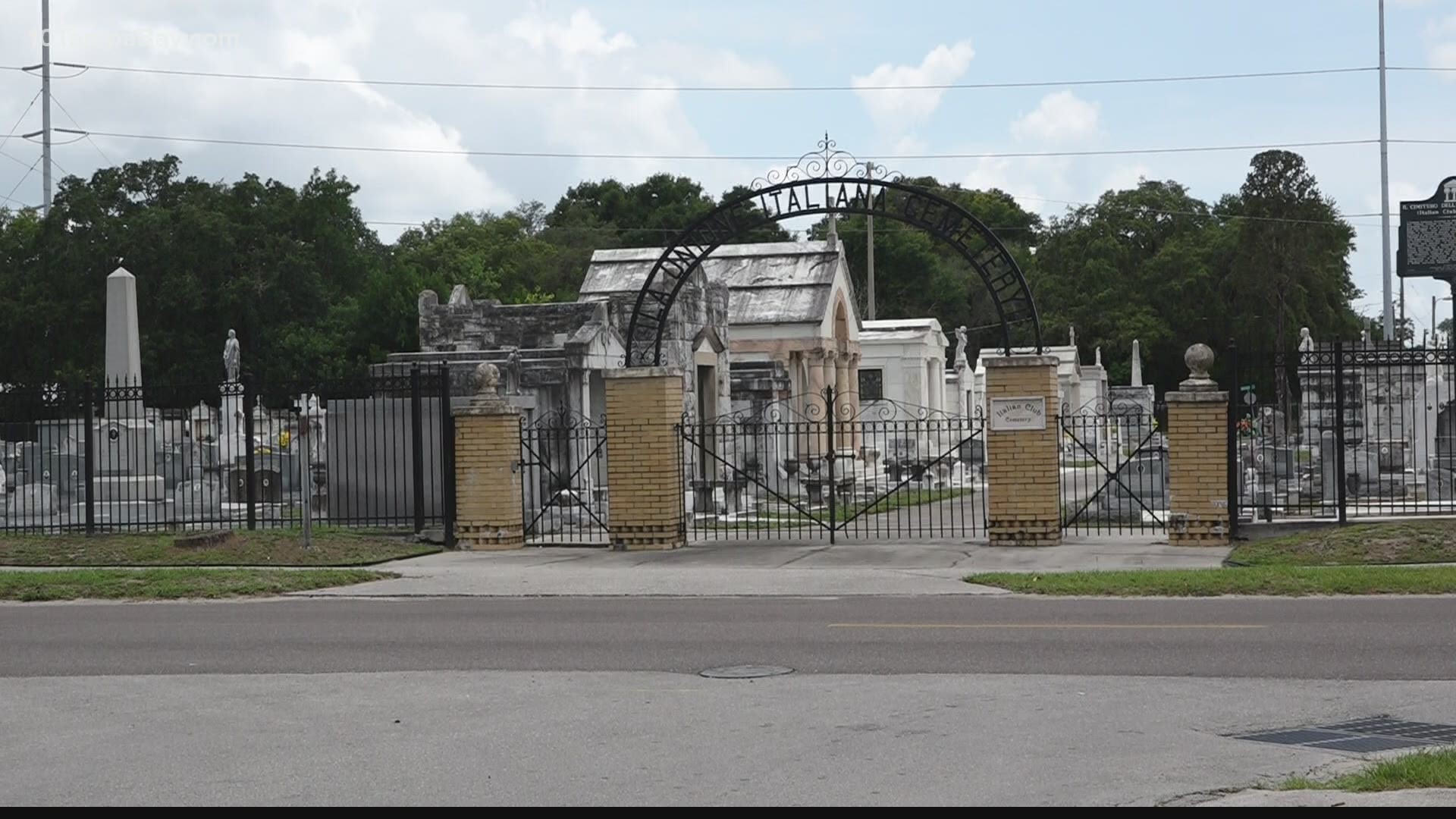TAMPA, Fla. — Juneteenth is this Saturday, and Hillsborough County’s NAACP chapter is asking the city of Tampa to do more than just talk about it this year.
It wants the city to commit to investigating what could be as many as 1,200 hundred more lost African American graves at a site in East Tampa. One of them, they believe, could be the final resting place of Robert Meacham.
In life, Meacham was a former slave who rose to become Florida’s first Black state senator -- an advocate for educating the state’s Black children. Unquestionably, a historic figure.
“Probably one of Florida’s most important figures in Florida is reconstruction history,” Tampa Bay History Museum Director Rodney Kite-Powell said. “The era just following the Civil War.”
Yet in death, Meacham became one of the so-called “erased.” There is no grave marker and no precise history of where he was buried.
“You don’t hear that story in school. And we didn’t even hear that story in the papers,” said Yvette Lewis, president of the NAACP’s Hillsborough branch. “Nobody told us that story.”
Now, the local NAACP chapter wants the city to investigate whether Meacham might be buried along with more than a thousand others at the former College Hill Cemetery for Blacks and Cubans, which is located under what is now a parking area at the Italian Club Cemetery in East Tampa.
“You would think this city -- that African Americans didn’t have a part in shaping, molding, and growing this city, because our story has never been told,” Lewis said.
Documents show Meacham had relatives among those buried in the cemetery. An obituary from that day also suggests it could be his final resting place.
The NAACP wants the city to commit to bringing in experts with ground-penetrating radar and possibly excavating some portions of the property.
“It is time to allocate those dollars to do it. The city can do it,” Lewis said.
A spokesperson for the city of Tampa says this is a new request and they’d like to do more research, and that the city is showing commitment by investigating the lost cemeteries, providing legal resources and setting aside tens of thousands of dollars for historical markers.
“The city has taken multiple steps to right the wrongs that took place during the segregation era in our community. Tampa has provided in-kind legal services and financial support in an effort to preserve the history and restore dignity to those buried in these lost sites. We believe the solution is working together as a community and we’re very encouraged by the Governor’s creation of a statewide task force that will bring the proper focus and resources to this problem that stretches well beyond Tampa,” said an emailed statement from Tampa spokesperson Janella McGregor.
“It may have been removed. There may be nothing there,” Kite-Powell said. “But all indications are that it was, and the only way to find out is the next step.”
“It’s always not now when it comes to African American people. The time is now,” Lewis said. “The time is now, and we are here and let’s stand up and let’s work on this together.”
On Thursday, local leaders were planning to discuss a recent bill passed by the state legislature which, in part, creates a task force to identify and map unmarked and abandoned black cemeteries.
There are estimated to be as many as 3,000 of them across the state.
What other people are reading right now:
- How to explain Pride Month to your kids
- Riverview man accused of killing girlfriend, daughter set to represent himself in court starting Monday
- Carnival Cruises to resume sailing from Florida in July
- Lightning fans maintain energy after loss against Islanders
- Saharan dust cloud to make for some spectacular Florida sunrises, sunsets
- Pinellas County issues health warning for red tide blooms along beaches
►Breaking news and weather alerts: Get the free 10 Tampa Bay app
►Stay In the Know! Sign up now for the Brightside Blend Newsletter

